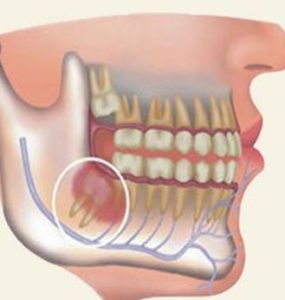The extraction of the wisdom tooth can be more or less complex depending on the specific clinical case and the anatomy of the patient and the operation can be performed both under local anesthesia and under general anesthesia.
Tooth extraction: local or general anesthesia?
Thetooth extraction and in particular of the third molar it is considered to all intents and purposes an oral surgery, which can have a more or less long duration depending on the difficulty of the case.
There are several variables affecting the complexity of the surgery:
- tooth shape
- position
- tooth root
- proximity to the alveolar nerve
- patient’s age
- clinical conditions of the patient
The co-occurrence of some variables, or in any case the complexity of even one of them, can lead to the onset of complications both in the intervention phase and in the post-operative phase.
In fact, the scientific literature records a complication rate between 1.1% and 4.3%.
Intra-and post-operative complications:
- hemorrhage
- alveolar nerve injury
- damage to adjacent tooth
- alveolar bone fracture
- alveolar osteitis
- infections
- paresthesia
Type of anesthesia and frequency of complications
 A recent study published in the journal Oral Surgery by a team of Australian researchers compared the frequency of the onset of complications during and after the operation and the type of anesthesia administered to the patient.
A recent study published in the journal Oral Surgery by a team of Australian researchers compared the frequency of the onset of complications during and after the operation and the type of anesthesia administered to the patient.
277 patients were involved in the study, 130 of whom were treated with local anesthesia and 147 treated with general anesthesia.
In addition to this, other types of information were examined, including the patient’s medical history, detected complications and documentation of diagnostic imaging.
Of 523 molars extracted, 284 were removed under general anesthesia and 239 under local anesthesia.
Complications occurred in 3.8% of cases, ie 20 complications of which 9 under local anesthesia and 11 under general anesthesia.
The cases of alveolar osteitis for surgical operations performed under local anesthesia.
Taking into account all the information gathered, no statistically significant data emerged on the correlation between surgical complications and the type of anesthesia administered.
Considerations on local and general anesthesia
Complex surgical operations, such as the extraction of a third included or inclined molar, are performed under general anesthesia in the presence of particular clinical pictures for greater operative control.
Since there are no direct correlations between the type of anesthesia and surgical complications, the surgeon will determine which of the options is more suitable, or opt for a third way, that of conscious sedation, used for dental phobic or disabled patients.
















